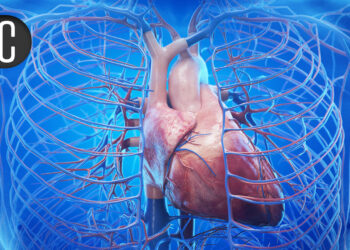
Monitoring people’s breathing could help diagnose, or even treat, various conditions
Milan Jovic/Getty Images
Forget facial recognition – there could be a new way to identify you. Researchers have discovered that we all seem to have a “respiratory fingerprint”, a unique way of breathing that could revolutionise how we diagnose and treat various health conditions, from obesity to depression.
The breakthrough comes from Timna Soroka at the Weizmann Institute of Science in Israel and her colleagues, who have developed a wearable device that captures the subtle nuances of how we breathe.
“This [work] is thrilling. It addresses many longstanding questions about how respiratory signals relate to health and mental state – all in one body of work,” says Torben Noto, who wasn’t involved in the research, at Osmo in New York, an AI company aiming to give computers a sense of smell.
The idea that breathing patterns contain health information isn’t new – work dating back to the 1950s hints at this connection. But without a wearable device that could record nasal breathing data as a person moves around, research was limited to data collected from hospital patients, who tend to have their breathing monitored for less than an hour.
To get around this, Soroka and her colleagues created a wearable device and gave it to 97 people who wore it for 24 hours. They then trained an algorithm to recognise unique combinations of 24 parameters – everything from the volume of air breathed in to how often breath-holding occurred. The algorithm could identify the participants with almost 97 per cent accuracy, and this signature remained stable over a two-year follow-up period.
Nevertheless, “don’t expect to have a nasal airflow recording next time you go to the bank”, says team member Noam Sobel, also at the Weizmann Institute. The goal isn’t to use the device for biometrics, he says, but rather to unlock valuable health information.
For instance, a person’s body mass index (BMI) could be predicted by a combination of parameters of the nasal cycle, the rhythm in which each nostril alternates between being more or less open than the other.
This cycle is governed by the balance of your sympathetic nervous system, which prepares the body for a “fight or flight” response, and the parasympathetic system, which calms the body, says Sobel. “So by measuring airflow in your nostrils, you’re actually gaining a measure of your sympathetic arousal, and that seems to be a predictor of BMI.”
This raises an intriguing possibility, says Sobel: rather than weight gain causing breathing changes, could breathing patterns influence weight? “If that’s true, we’ll find the breathing pattern that makes you thin and our whole group will retire and go live on an island,” he says.
The respiratory data also revealed correlations between aspects of breathing and levels of anxiety and depressive symptoms. People who had high levels of depressive symptoms inhaled faster, for instance.
The team is now investigating whether breathing patterns actually cause these symptoms, to see whether they can be used to diagnose some common mental health conditions, which could then potentially be treated via breathing exercises.
“It’s not hard to imagine a future where every patient is given a nasal airflow monitoring device that tracks treatment, provides feedback and predicts outcomes for a range of disorders,” says Noto, who came up with the 24 metrics that the team used to measure different aspects of breathing. A device could also help individuals recognise when their respiration deviates from normal. “It has the potential to have a huge impact on human health,” says Noto.
Source link : https://www.newscientist.com/article/2483830-how-you-breathe-could-reveal-a-lot-about-your-health/?utm_campaign=RSS%7CNSNS&utm_source=NSNS&utm_medium=RSS&utm_content=home
Author :
Publish date : 2025-06-12 16:00:00
Copyright for syndicated content belongs to the linked Source.













